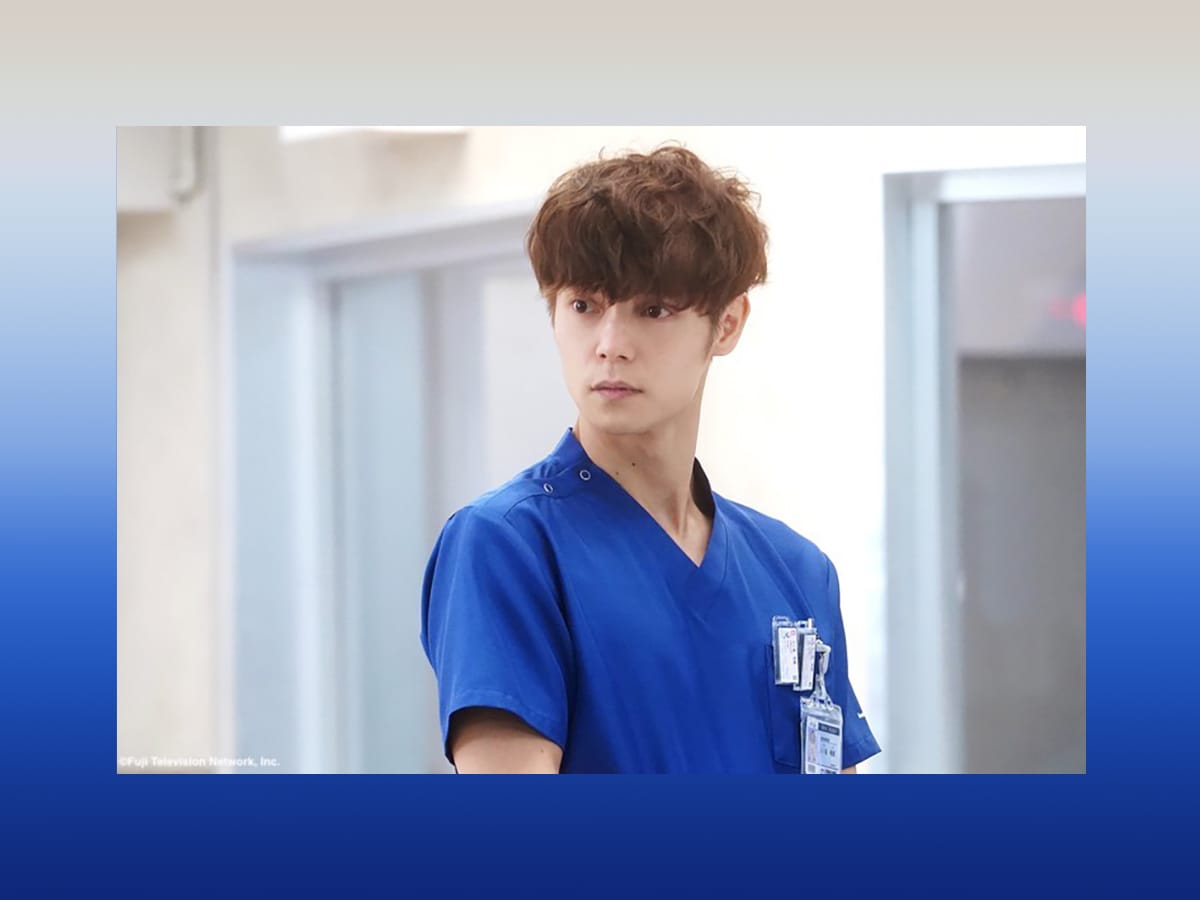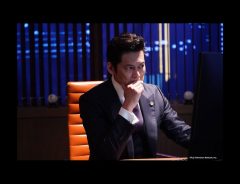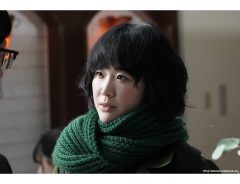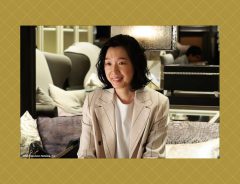
Source: © Fuji Television Network, Inc.
Exclusive Interview with Masataka Kubota from “Radiation House II”
- Tags:
- Drama / Fuji Television / Fuji Television Network Inc. / Masataka Kubota / Radiation House / Television Drama
Related Article
-

Japanese cat’s before and after bath drama has Twitter in stitches
-

Yuji Oda & Yuto Nakajima exclusive interview Summer 2020 from “SUITS Season 2”
-

Exclusive interview with Haru Kuroki from Fuji TV drama “GOSSIP – #What she wants to know”
-

Upcoming Fuji TV Dramas: “Absolute Zero 4” & “Alive: Dr. Kokoro, The Medical Oncologist”
-

Exclusive Interview with Noriko Eguchi from “SUPER RICH”
-

Yoshino Kimura exclusive interview from “Alive: Dr. Kokoro, The Medical Oncologist”


Note: This text is reproduced verbatim and provided courtesy of © Fuji Television Network, Inc.
(Interview Date: October 2021)
Q: Please tell us how you felt when the production for the second season was confirmed?
The cast members get along so well with each other in a way that is rare for usual filming locations. It’s a wide age range from the youngest to the most senior, but we can all talk to each other quite freely. I think that this relaxed atmosphere is one of the best things about "Radiation House." We often say to each other, “If this was on another filming set, it would be a lot different,” but when it comes to “Radiation House,” it's like we can all somehow come out of our shells (laughs). So, I’m honestly happy to be able to come back to such an on-location environment. The fact that we have the second season is because we have the first, and I had originally felt we had to brace ourselves for another challenge, but now it feels like the weight had been lifted off my shoulders.
Q: The previous season was also much loved by the viewers. What do you think was the reason?
I think the appealing aspects of the drama, is that it focuses on behind-the-scenes accomplishments of radiographers instead of doctors who normally get the spotlight, so we get to see areas that usually remain hidden in the shrouds which might be intriguing for those watching.
Q: I think it may relate to the relationship between the cast members, and it was a series where the various interactions among the “Radiation House” team seemed pleasant to watch. What do you pay special attention to in these kinds of areas?
There were a lot of technical terms, so I requested to have less of it than the first season (laughs). As for Iori, it's been two years since the first season, and the character returns after his overseas studies. So, when I’m playing the role, I’ve been focusing on trying not to show any obvious changes from his experience, such as suddenly speaking in a fluent manner. After all, the most important person for him is “An Amakasu,” the doctor who is always there with him. However, the overall rhythm for the acting element should be created together with everyone, so rather than thinking about the pace, I just try to go along with what the director has in mind.
Q: Did you get a sense that the “atmosphere” on-location was already created from the first day of filming?
Before starting filming for this season, I was working on a specific drama series aired in the mornings, but the transition back to “Radiation House” felt so natural that it didn't feel like I had a year and a half away. We have the exact same set as the first season, so when I walked on to it this time round, it felt like I had come home.
Q: On the other hand, please tell us what has changed and any new areas we should look forward to for the second season?
The biggest thing is that we now have new team members, but I also feel that the richness of the roles is linked to the characters having been active in their own specific fields and worked on various areas over the past two years. In the first season, we all faced and overcame various hardships and difficulties together. After two years of being at various locations, we were united once again, so it was like the heroes had gathered for the second time. So as soon as I got to the filming location for the second season, I was able to feel a sense of strong energy because of things leading up to this.
Q: To preserve his “unchanged” status, how did you try to balance out the role of Iori whilst playing him?
Rather than “balance,” I think Iori is a character that shouldn't change. He's the main character in the original story, but he's more of the type that doesn’t stick out too much. But when it comes to the drama itself, he must be at the center due to the requirement of depicting the story to the viewers. The director and I talked about the need to have the “courage to stay the same,” so we decided not to make any obvious changes for the character. When I went to the costume fitting session, all I saw was an orange coat, a white shirt, black pants, and shoes (laughs). And then there's the blue uniform. It was the shortest fitting ever. I was astonished in a way, that it hadn't changed at all. Seems like he had been wearing the same type of clothes for two years (laughs).
Q: So, you were happy with the lack of change?
I had hoped for a bit of change of course. In my mind, I wanted to have changed things up, but I think there’s a responsibility for playing the main character, so I'm doing my best to find other small ways to have fun (laughs).
Q: When you started filming, what were the things that brought you back memories or enjoyed?
Kenichi Endo is amazing (laughs). The person we interact with the most is his on-screen character, who is also the leader of the radiography team. I think Mr. Endo’s cheerfulness is one of the most important elements for the filming set.
It’s very interesting, but for some reason, when even one of the members is not present, the atmosphere feels somewhat different. When we are shooting, it’s normal to be together all the time, and even approach a patient as a whole team (laughs). Many times in the past, Mr. Endo’s personality, or rather his neutral attitude towards everyone has helped me a lot.
Q: Is it easy for you to play your character or rather challenging?
I know it's kind of repetitive, but everyone gets along so well. I also talk to Tsubasa Honda (who plays the heroine character) on set in a friendly manner, so I sometimes lose track of the sense of distance between us.
Q: It's been two years since the last series, and having come back after experiencing other acting works, are there anything you noticed this time?
That’s a tricky one. I don't think I've grown much myself (laughs). I just wonder whether Iori could live his life more cleverly. When the character finds a disease, that's all he thinks about, so I'd like to see him with more of an open thought process. The things he’s interested in are “An Amakasu” and medical examinations (laughs), so I think if he could broaden his horizons a little bit, he might be able to change his status in the hospital.
Q: Norito Yashima and Masahiro Takashima has joined the series as new members from the new season. Norito Yashima has been the narrator since the last season and appeared at the end, so technically he’s not new?
He appeared at the end of the first season, and I was wondering if that was it. But now he's a core member, so it's not an exaggeration to say that he's always right in the middle leading us on set.
Q: On the other hand, the new director at the hospital played by Masahiro Takashima is a coldhearted person?
The character he plays is very intimidating, though he himself is a kind and funny person. I don't think the director is necessarily an “enemy,” but from the viewers' point, he seems like it. In fact, he positively stirs things up in the hospital and makes the drama even more exciting.
Q: Mr. Takashima is a man of many interests, so I'm sure you must have had a lot to talk about.
Yes indeed. Recently, speakers have been placed in the waiting room for music, and recommended comics are put out, with snacks and even health products. Also, not only Mr. Takashima, but all the members bring what they think is good and what they like.
Q: So, Everyone?
That's right. There are a lot of studio shoots, so we try to boost up our energy through these kinds of things.
Q: How will the love story between Iori and An turn out?
The characters don't have the time to talk that much. They are both so busy. Patients keep coming in, and we must do more and more work, so we rarely get much private time.
Q: Do they need more time to spend together?
I'm sure they're saving it for later (laughs). If it was like in a manga, Iori may play cute in front of her. But in the new season this may all turn around. However, I hope things may become more clearer in this season.
Q: Oh, really?
Well, I’m not sure (laughs). But there's also the one played by Alice Hirose and Nobuyuki Suzuki’s character who likes An, so I'm sure a lot more will happen.
Q: It's also the charm of this drama that it portrays various human aspects, including those of the guests in each episode?
The guests are also so amazing! The production team also puts a lot of effort into that, so we all try to create an environment where people can feel comfortable and enjoy each time in an episode.
Q: Maybe the guests are always quite nervous?
That's right. There are many participants of various backgrounds, and most of the characters have an illness. I’m sure especially the younger ones are quite nervous. However, the team has characters who are skilled in dealing with children, and we have a great selection of people who can handle many kinds of cases. If you ask them to “take a real MRI,” they won’t be able do it, however, I’m sure they will be fully capable of other areas. That's because I think that we have such a talented group of people.
Q: As the central character in the drama, what do you try to keep in mind when working with such a strong team?
It means that you must keep bringing in treats (laughs). Nowadays, there are many restrictions and guidelines on what you can bring in, so I'm trying to do what I can within the limits.
Q: It's hard to keep thinking about what to bring in right?
It's hard work, but it's fun. I believe that sharing these kinds of fun with everyone makes us feel more like a team and leads to something more.
Source:
Exclusive Interview with Masataka Kubota from “Radiation House II”
(Fuji Television Network, Inc. All rights reserved.)